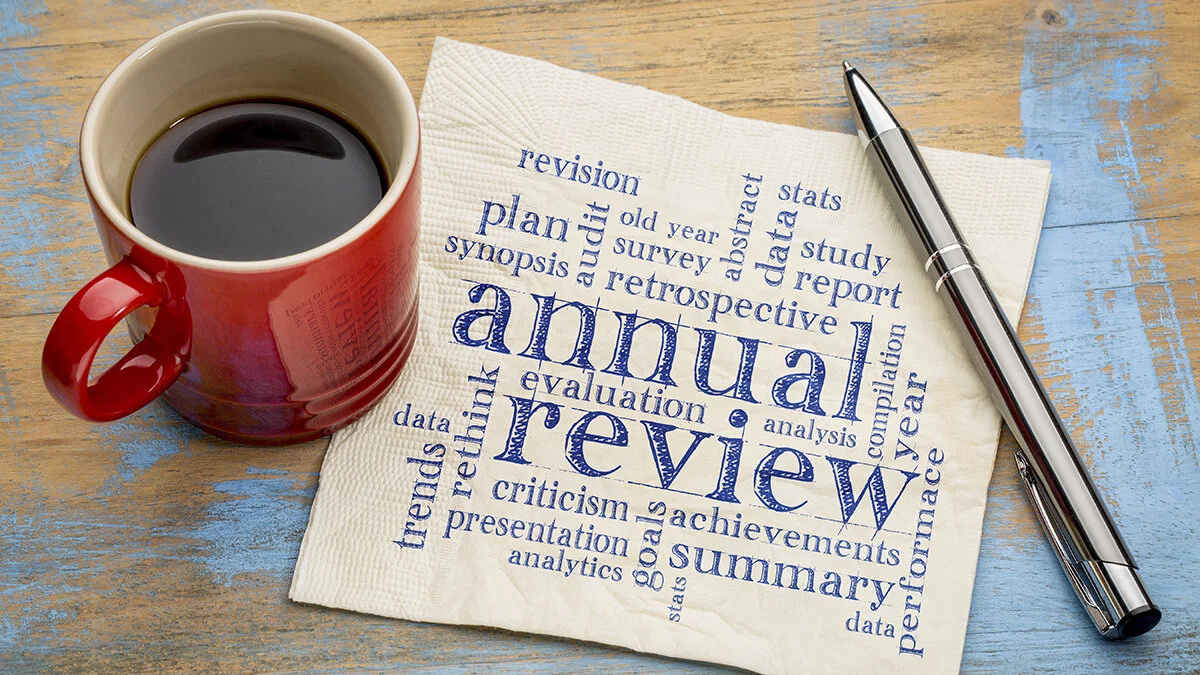Performance Review FAQs
© MarekPhotoDesign.com / Adobe Stock
It’s hard to believe the fourth quarter is upon us! It’s that time of year when we are not only wrapping up 2021 but also preparing new year’s resolutions for 2022, both professionally and personally. Now is the time to get your Ps and Qs in order and make sure your direct reports are on the same page as you. Do they know how you think they are performing? Are their thoughts on advancement in line with your own?
What are performance reviews?
Performance reviews, whether formal or informal, are a way to sync with your direct report on how they are managing their work responsibilities. Whether you are pleased or displeased with someone’s work output, would they have the same answer as you if they were asked? A review documents this assessment in a way that can be referenced later so there is no confusion on the organization’s expectations and opportunities for them.
Why do performance reviews at all?
The main reason is to avoid any potential misunderstandings. When individuals are doing well, they want to hear it. On the flip side, when individuals are not performing well, they need to hear it.
The rule of thumb with these assessments; there should be no surprises in a performance review. This means if someone is doing well throughout the year they hear about it in real time, and if they make a mistake, they are being coached in real time. However, not every action merits a response from someone’s direct supervisor. Often, we all get so busy we forget to make time to give feedback because it’s easier to let it go or fix it yourself.
Do performance reviews really ever fix anything?
Ideally, if someone is underperforming, the direct supervisor can use the performance review to facilitate a potentially difficult conversation and outline a path to bring them up to speed. Whether that includes re-training, more supervision, or a final chance to succeed, giving this written plan to an employee can help them understand what is expected and how the employer is trying to help them succeed in the end.
One main key is truly following through with this plan! If someone is told they need additional training, it is the supervisor’s responsibility to then ensure that it is available to them and check in on any progress being made. Only with a clear improvement plan and managerial follow-up can anything ever really be “fixed”.
If my employee is doing really well, do they need a review?
Performance reviews also provide the opportunity to chat about advancement, when applicable. Not all great performers also have the skills required to be a people manager, so what could advancement look like in your organization? Perhaps additional responsibilities in another area, more independent decision-making authority in an area in which they excel, or even creative liberty to improve processes. Employees do well when given the chance to be heard, so be sure to ask them what their career goals are as they grow within your organization, rather than simply guessing.
What if my employee asks for a raise?
It’s true, this is a possibility. Performance reviews often go hand-in-hand with raises, or at least discussions regarding the possibility of a raise. In the end, the employer either has funds allocated in their budget for raises or they do not. An employee has either earned a raise, or they have not. Cost of living adjustments (or COLAs) may be something your organization can sustain year after year, or they are not. Managers should be prepared to speak on all these topics and the position of the organization before they begin the review session. If raises are on the table, be sure to share with the employee what they have done to earn that raise and thank them for their hard work!
Do they need to be formal?
Not necessarily. The main goal here is to be communicating with your direct reports; however, when discussions are documented, it is much easier to refer to those notes should things improve or regress. It is certainly recommended to document any discussions of this kind. As any attorney will tell you; if it isn’t documented, it never happened.
How do I get started?
If you decide to make your reviews formal, there are many tools out there to choose from. If done properly, performance reviews will also integrate with your overall compensation strategy/budget, your organization’s core values, and the job descriptions for each position. Another benefit of formalizing a review is streamlining rating and delivery process so it is more consistent, giving each employee an equal shot for feedback and advancement opportunities.
For tools or more information, contact your Human Resources Consultant at Skywalk Group by using this form, or emailing us at hr@skywalkgroup.com.
By Samantha Rogers

